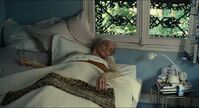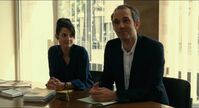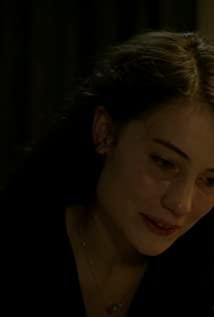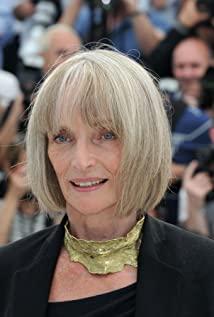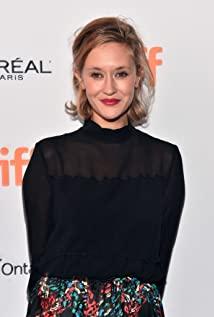In my opinion, "Future Things" is actually "living in the present" and "breaking away".
The protagonist of the movie, Natalie, studied philosophy. Philosophy is dialectical, and there is no absolute truth (there is a discussion between Natalie and her students about "truth" in the movie), just like life itself. Just like the movie said that she experienced a radical youth, and also joined the gong production dang, but the times changed, and as she got older, she no longer believed in extreme theories, and became a compromised "middle class" in the mouths of young people. Yearning for life itself, planting flowers and plants, facing the sea-because "that's it", she is no longer what she was in the past, and she no longer believes in the truth she believed in the past.
Fabian, the student she admires in the film, is an "exact copy" of her youth: youthful, philosophical, and involved and keen to discuss social movements. She loves him, not without the nostalgia and projection of her "youth", although she knows that she is different. Fabien suggested to her that "you may be with a young man again" - "how is it possible?" This was her blurted attitude and what was in her heart. Because even though she appreciates it, she knows that she is a different kind of person and wants to live a different kind of life. In the movie, she lived with Fabien and a group of Fabien's friends for a period of time. She went to see the mountains and the scenery alone, and was at ease; but when she was with Fabien's friends, she was often alone. , She hid herself in bed and cried, because she knew that she was an outsider and out of place. The saddest thing is that she has also seen Fabian's future. Fabian told her that she should live like this for now, but she will not know what to do when she has a child. Natalie has actually foreseen that Fabian will face the pressure from life, and maybe he will become "she" in the future, but in any case, life will give Fabian the answer. All she could choose was to say goodbye.
Another line in the movie is Natalie's mother, who loves Natalie's father deeply, but ends up in divorce and is unhappy for the rest of her life. In her mother, Natalie sees an "exact copy" of her "future". Her husband cheated, but she still said "love her forever". If she continued to be so ambiguous with him, she would be like her mother, and she would be entangled with this man forever. The mother left Natalie a cat named "Pandora", Pandora is "desire" and "dangerous", although it looks cute. The last thing she could choose was to say goodbye. She asked for the key in her husband's hand and gave Pandora to Fabian. "Break away", not only say goodbye to the past, but also say goodbye to the possible "future", and live in the present.
There is a very interesting scene in the movie. She is watching a movie in the cinema, and the movie shown is Abbas's "Reproduction". The man in the theater hopes to have a love encounter with her like the plot of "Reproduction". But both inside and outside the film, Natalie chose to refuse, she couldn't make that replica, and life couldn't and shouldn't make a copy.
There's a scene at the end of the movie, too, where she smokes marijuana and sleeps in bed on her last night at Fabian's. In the middle of the night, she thought of Pandora, she came downstairs, Pandora was hiding by the fire, and Fabian was working in front of the computer. She seems to want to do a farewell ceremony with Fabien and Pandora in that scene, and say goodbye to the nostalgia (for the past) and the desire (for the future) that cannot be let go--speaking of which So sad, but isn't life just going to go on like this?
After watching this movie, there is an inexplicable sadness lingering, so I stayed in the Chunfa Garden of Yau Ma Tei Film Center for a while, smoked a cigarette, and ate a bowl of dregs at the temple street that I often go to, feeling alive. It's beautiful enough, just like Natalie holding the baby at the end, life still has to go on, who said no?
View more about Things to Come reviews




